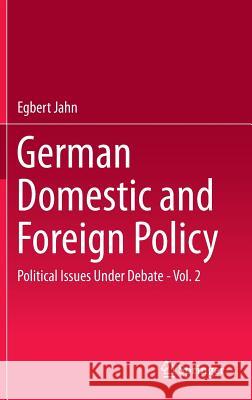German Domestic and Foreign Policy, Volume 2: Political Issues Under Debate » książka
topmenu
German Domestic and Foreign Policy, Volume 2: Political Issues Under Debate
ISBN-13: 9783662479285 / Angielski / Twarda / 2015 / 246 str.
Kategorie:
Kategorie BISAC:
Wydawca:
Springer
Język:
Angielski
ISBN-13:
9783662479285
Rok wydania:
2015
Ilość stron:
246
Waga:
0.54 kg
Wymiary:
23.39 x 15.6 x 1.6
Oprawa:
Twarda
Wolumenów:
01
Dodatkowe informacje:
Wydanie ilustrowane











